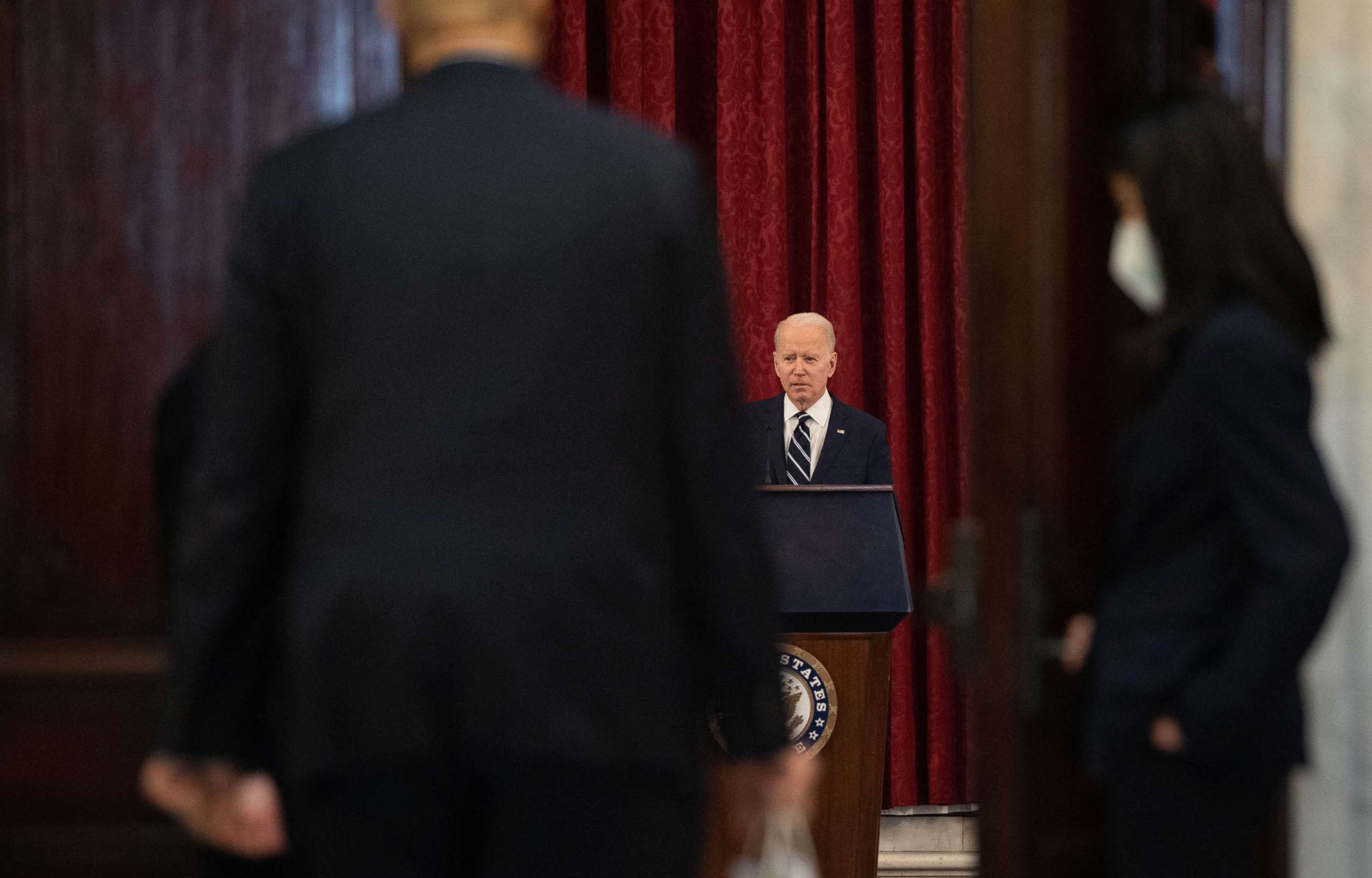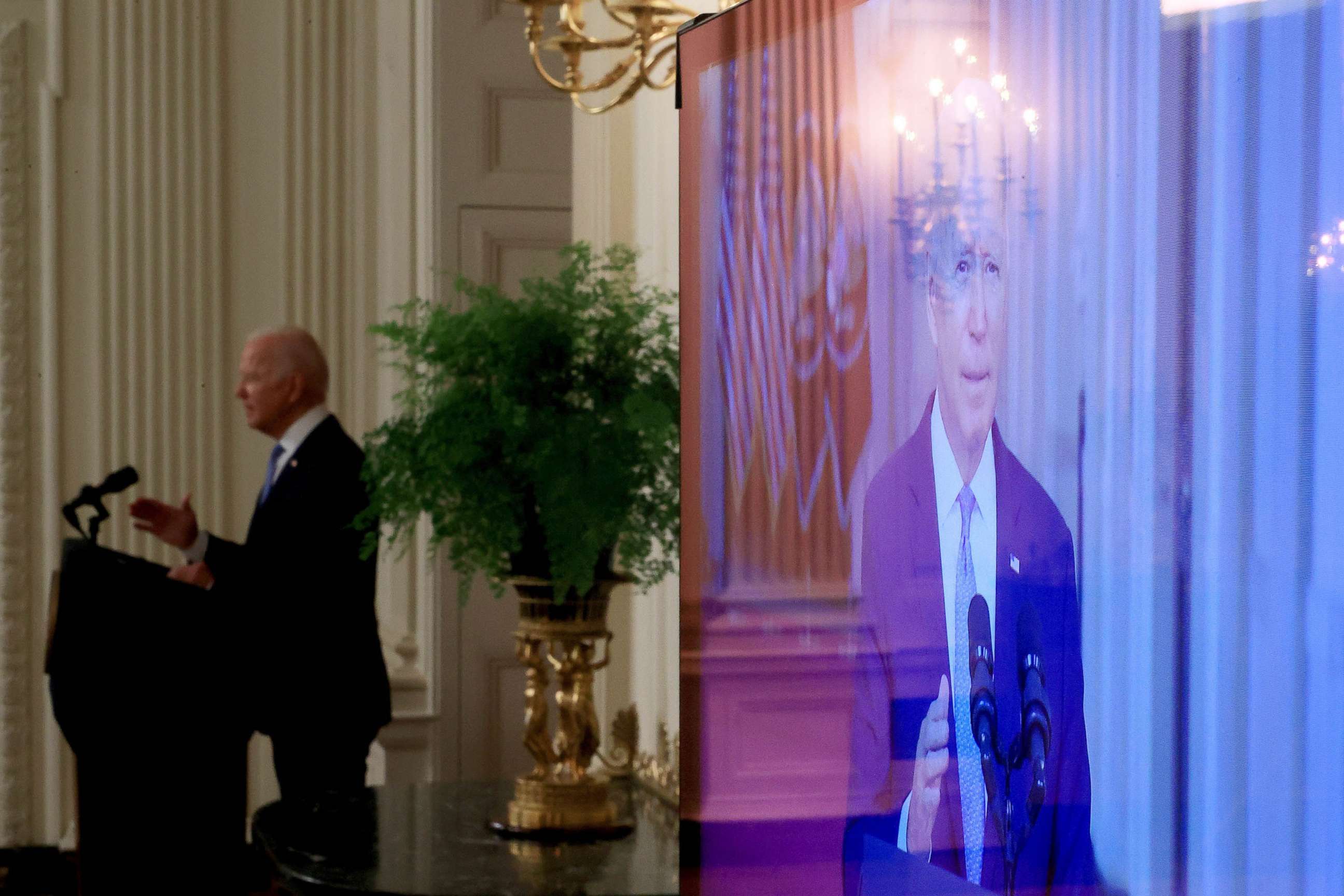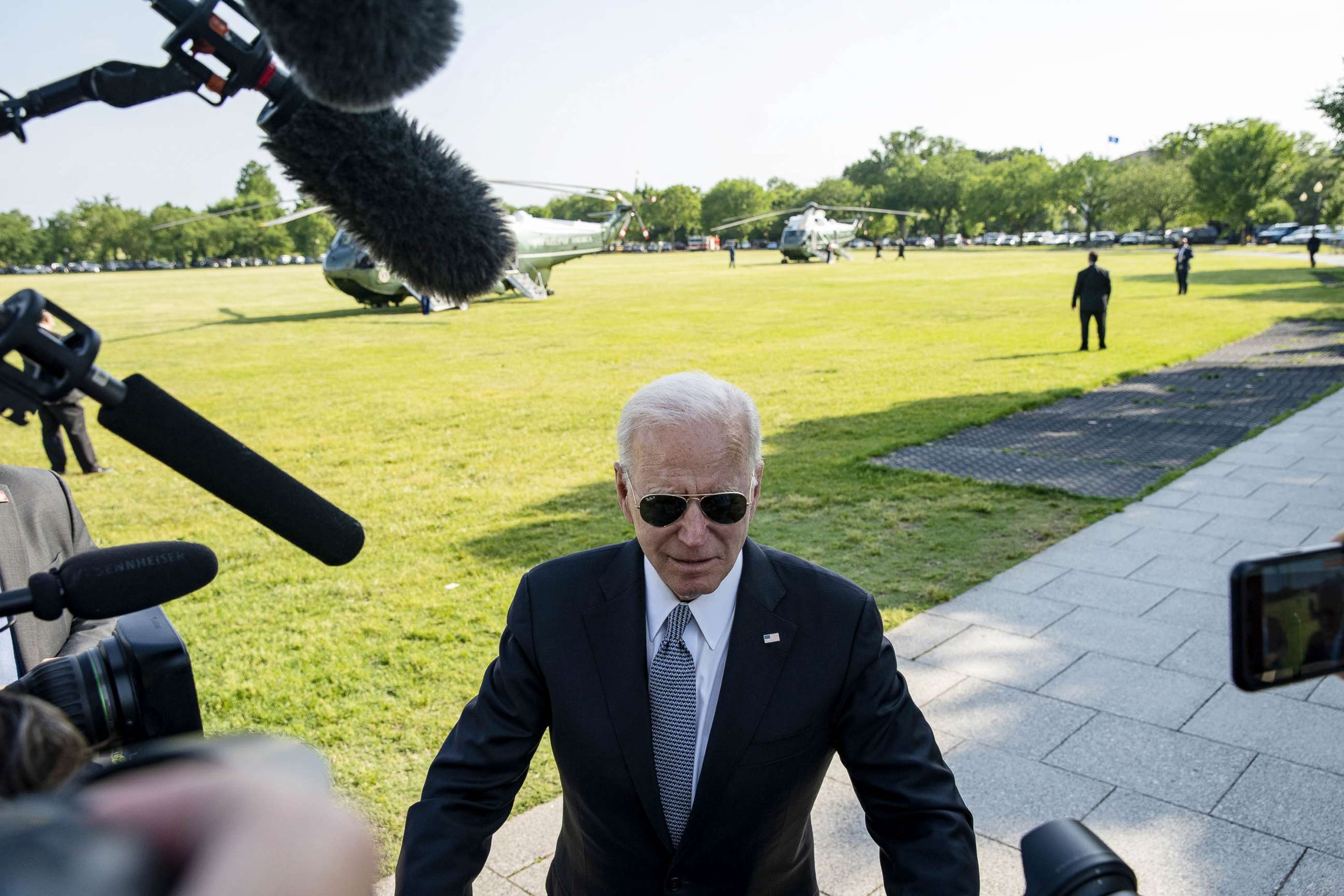What's behind a presidential approval number?
ABC News' Rick Klein and FiveThirtyEight's Geoffrey Skelley explain.
Usually, the presidential approval rating is used to measure a president's job execution. But what does this number actually represent?
"Presidential approval rating is a snapshot. It's a poll where individuals are asked to give their sense of whether they approve or disapprove of a president's job performance," ABC News political director Rick Klein said.
According to data agency Gallup, a presidential approval rating is a simple measure, yet a very powerful one that has played a key role in politics for over 70 years.

"It's about as basic a question in a poll… and it's just a good basic back of the envelope sense of where does the public feel like the President's leadership has taken us," Klein said. "It's a pretty close stand-in for the general sentiment of 'do you feel like things are going well for you or not?'" he added.
For citizens, an approval rating represents how well the administration is doing, but for politicians, it could determine the outcome of an upcoming election or how much you get done during their time in office.
"The difference between having a very strong approval rating and a very weak one can be the difference between getting things done and it could also be the difference between your party's staying in power or not," Klein said.
As we enter the midterm election cycle this year, many are looking at President Joe Biden's approval rating.
"The higher a president's approval is, the better his or her party tends to do," FiveThirtyEight election analyst Geoffrey Skelley told ABC News.
Trends point out that even when a president's approval rating looks good, their party tends to lose seats in the House of Representatives.
For example President George H.W. Bush’s approval rating reached 80% when he marked his first year in office. Ten months later, with Bush’s approval rating down to 54%, the Republican Party lost eight seats in the U.S. House of Representatives in the midterm elections.
"It's really hard for the president's party … but you can sort of make it even more difficult for yourself if you're unpopular going to the midterm elections," Skelley said.
"A strong approval rating means that you've got a strong hand in dealing with Congress, in getting public support for things and getting your party on board for your major initiatives," Klein said.

President Biden's first approval rating registered by Gallup was at 57%.
As of Jan. 16 his presidential approval rating went down to 40%, according to Gallup.
Because the president's performance is a general view of their performance, there are multiple numbers from different polls that examine his execution.
"As a general rule, you should never go off of just one poll … one poll might have a certain methodology used that differs a bit from another one," Skelley said.
Skelley examines presidential approval ratings for FiveThirtyEight, a sister company of ABC News.
"It's best to average them because that gives you sort of the most holistic view of what all surveys are saying," he added.
If there is a drastic change in the average number, it generally represents that people are reacting to a situation that occurred. If there's not much difference, Skelley said it can be cataloged as "noise."
"When you do see a sharp movement … say after the Taliban took Kabul and Biden's approval rating did drop pretty notably that's when you know, something seismic or something really important is happening," Skelley said.

"As things have gotten more partisan and polarized in our world today, you have a situation where the moment Biden got into office, Republicans' views of the economy tanked and Democrats' views improved markedly," Skelley said.
A presidential approval rating can drop or increase as multiple aspects in the world change.
"When it comes to the president's approval rating, everything matters. But you can also say that nothing is determinative," Klein said.
"What does happen is an accumulation of storylines and things that people read and hear and are told, those add up to the general perceptions of a president," he added.
There are multiple trends experts follow when analyzing a president's approval rating — the economy being among the ones that drive the number up or down.
"If things were booming, and everybody felt good, and the inflation was not going up I think Biden's approval would be higher," Skelley said.
But because the presidential approval rating can be triggered by multiple factors it's a number that has to be examined closely.
"It doesn't mean that you agree with everything or disagree with everything … it's about the general perceptions," Klein said. "It comes back to that national mood."